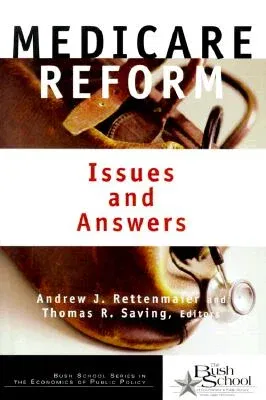In 1965, landmark legislation established the national Medicare system
as a means of insuring access to medical care for all elderly citizens.
Today, rocketing medical costs combined with a rapidly aging population
have thrown the Medicare system off balance, moving it perilously close
to financial crisis. Medicare already accounts for 2.65 percent of gross
domestic product, and by the year 2030 that share is expected to more
than double. Further, the trust fund dedicated to Medicare
hospitalization coverage is expected to be depleted by 2008. Clearly,
Medicare as we know it cannot endure much longer without either imposing
a massive tax burden or dissolving altogether under its own financial
strain.
Medicare Reform--the first volume in a new series sponsored by the
George Bush School of Government and Public Policy at Texas A&M
University--tackles the current Medicare predicament head-on, delving
into the fundamental issues surrounding the reorganization of the
system: whether to allocate Medicare's growing financial load to current
workers in the form of higher taxes, shift the onus to future
generations, or shortchange both the expectations and care of present
recipients by substantially cutting benefits. This volume assembles a
group of the most highly respected analysts of health issues to consider
the economic forces impacting the surging health care market.
Written for the general reader and offering innovative ideas for policy
revision along with critical new data on health care economics, this
comprehensive volume provides a timely and thoughtful deliberation on
the precarious future of Medicare.
Because, as Richard Weaver once said, 'ideas have consequences, ' this
book is important. It will not end the debate on Medicare, but it will
begin it.--Phil Gramm, from the foreword

